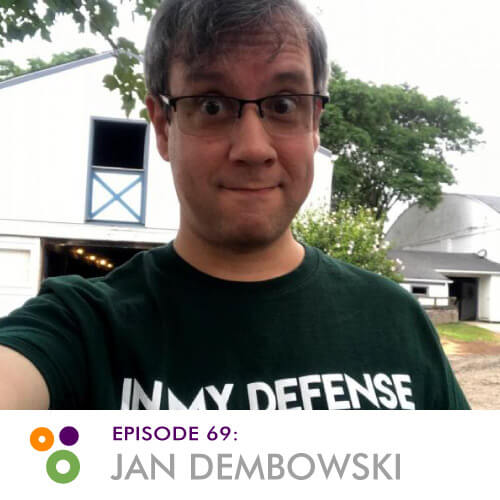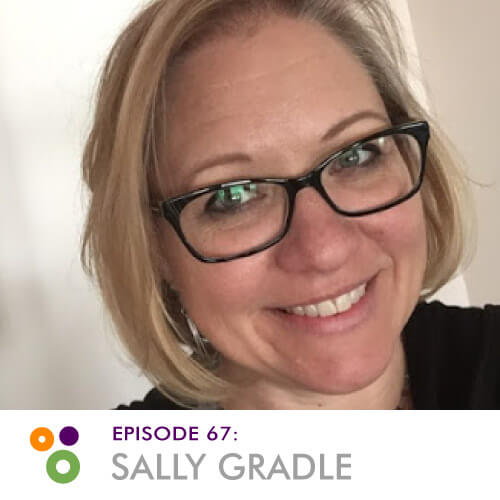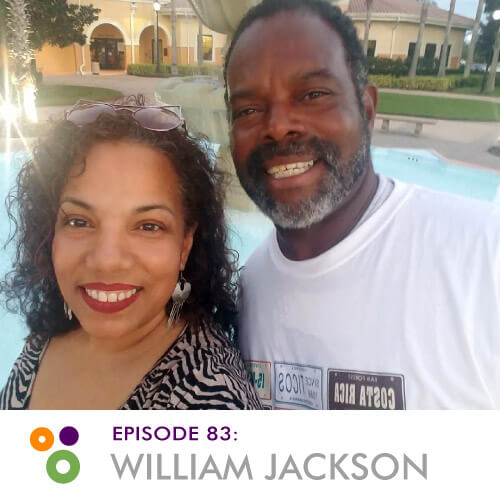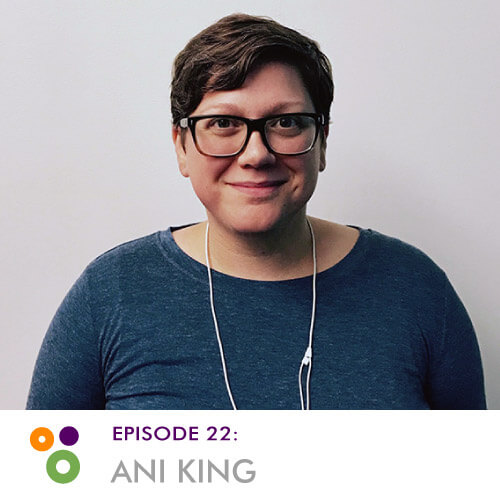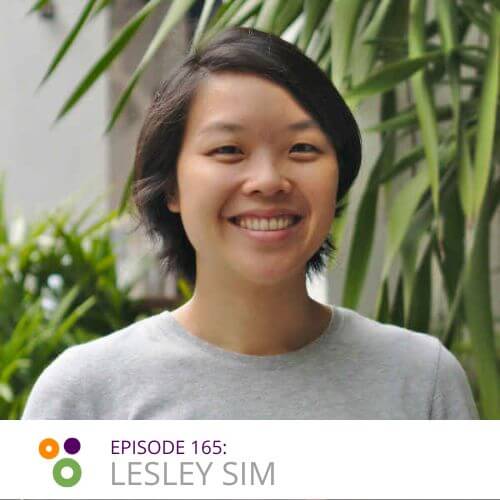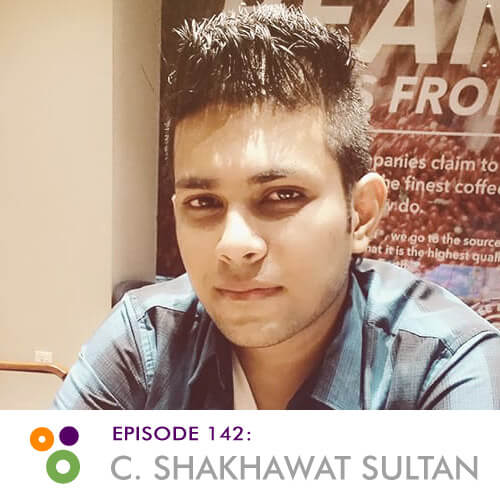Episode 55: Morgan Estes
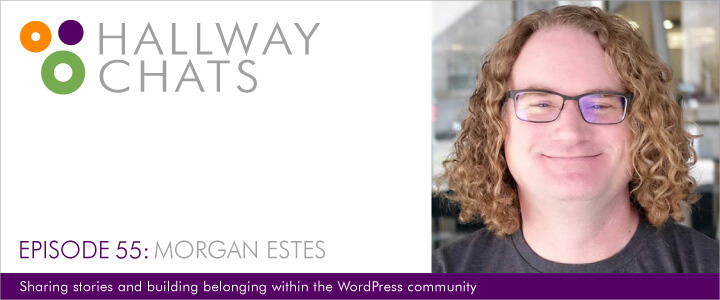
Podcast: Play in new window | Download
Subscribe: RSS
Introducing Morgan Estes
Morgan Estes is a Christian, a husband, a father, a WordPress developer, a veteran, and a nerd. He has been working with WordPress since 2009 and first learned PHP by reading the WordPress source code.
Show Notes
Website | Morgan Estes
Website | Big Wing
Twitter | @morganestes
Episode Transcript
Liam: This is Hallway Chats, where we talk with some of the unique people in and around WordPress.
Tara: Together, we meet and chat with folks you may not know about in our community.
Liam: With our guests, we’ll explore stories of living – and of making a living with WordPress.
Liam: And now the conversation begins. This is Episode 55.
Tara: Welcome to Hallway Chats. I’m Tara Claeys.
Liam: And I’m Liam Dempsey. Today, we’re joined by Morgan Estes. Morgan is a Christian, a husband, a father, a WordPress developer, a veteran, and a nerd. He has been working with WordPress since 2009 and first learned PHP by reading the WordPress source code. Hey, Morgan.
Morgan: Hey, Liam
Tara: Hi, Morgan. Welcome to Hallway Chats. Can you please tell us a little bit more about yourself?
Morgan: Sure. I said my name is Morgan Estes. I live in Edmond, Oklahoma which is just outside of Oklahoma City. I work downtown in Oklahoma City and I’m originally from California. I joined the navy when I was 17 and traveled the world, moved all over the country and just kind of ended up here about 14 years ago.
Tara: And how are you liking it there in Oklahoma City? We were talking about this a little earlier.
Morgan: Yeah. There are very unique things to every place I’ve lived but this is the only one besides when I was in the Persian Gulf where it’s over a 100 degrees for like a 100 days straight, and that’s normal, and I don’t do heat very well.
Tara: Yeah, it’s hot and muggy here, too. So you’re comparing this to the Persian Gulf? Can you tell us a little bit about your military background?
Morgan: Like I said, I joined when I was 17. I left home, went to Bootcamp in San Diego and I took a job when I joined up. They said, “What do you want to do?”, “I want to work with computers.”, “Great. We’ve got a job for you.” And maybe computers are not like any other computers in the world. I got to work in front of a big grey box that was running some weird version of Unix and did radar work. I worked on radars and communications and ended up doing a total of six deployments in the 12 and a half years I was there. My last two years of active duty, I deployed four times and started getting burnt out. But I got to do some really fun stuff. I did eventually work with computers but I’ve also been able to travel a lot and enjoy the time that I was there.
Liam: When you say you did radar and alike, does that mean you’re the guy with the headphones on and watched for incoming vessels and vehicles or were you getting to troubleshoot why they weren’t working and getting them back on as missiles were incoming? [laughter]
Morgan: Really, both. My main job was a guy with the headphones on listening to radios and talking to other ships and watching ships and aircraft. I did some air control so I got to talk to pilots and direct them where to go, and also, there was only, at one point, two of us who understood radars on one of my ships, we were a really small one. So I ended up climbing 150 feet in the air and working on them with the main radar technician. So I learned a lot about how the internals of them work. I had a tendency to break things and the technicians who repaired them got tired of that so they would come to me and say, “Let me show you how this works so you don’t break it again.”
Tara: Okay.
Morgan: I really enjoyed that and I learned mentorship through breaking things.
Tara: Interesting. You were 17. Were you already involved with the computers at that time? Is that why you knew you wanted to do it or what led you to the military to begin with, I guess?
Morgan: I come from a military family. My dad’s navy, dad’s dad on both sides, dad and mom, both grandpas were navy, uncles marines, got family air force. It just is a thing with us. I started programming when I was in sixth grade, reading the back of Apple magazines and typing in the basic source code into Apple and watching things work, and then turning off the computer and losing everything at school. I just knew, “Hey, these are pretty cool and I can make them do things.” That’s what I thought I would do for the rest of my life is programming computers.
Tara: And the navy was lucky to get somebody who already had that sort of fascination. You learned a lot while you were there?
Morgan: I learned a whole lot while I was there.
Tara: Yeah. And when you left the navy then, how did you translate that into your next thing? Is this the next thing that you did after the navy or was there something in between?
Morgan: This is pretty much the next thing. I left the navy and went to college. I went to Oklahoma Christian University to learn computer information systems. I made it about a year and a half in before I realized I hate programming, so I changed up my major and I started liberal studies. I studied Bible, business, and history, and graduated with my bachelor’s degree and immediately took a job for the bar association as their programmer and website editor. I figured out that it’s not programming that I hate, it’s just C++.
Tara: Okay.
Liam: I’m glad you clarified that because you told us that, “I realized in college that I hated programming.” And then the first job you took out of college was to do programming.
Morgan: Yeah. I remember sitting in class one time and this gal sitting behind me saying, “My dad’s teaching me this language called PHP, it is the future. And they’ve got this thing called WordPress.” I’m like, “Yeah, I just don’t get it.” Two years later, I was working and contributing to WordPress.
Liam: Because of the woman behind you in class or did you just get so frustrated with C++, or is it the job out of college where they said, “Hey, Morgan, we need a website to do this.” And you said, “Okay.” And then you ended up looking around, you found WordPress. How did you make that transition? How did that happen?
Morgan: It was the first job out of college, was with the Oklahoma Bar Association. At that time, it had over 4000 pages of static HTML. I managed everything with Dreamweaver and FTP. They had a programmer in IT and she knew PHP. She helped me kind of make things dynamic. I’ve built a couple of my own CMSs because, of course, who hasn’t? I did stupid things like publishing spreadsheets to the internet that were internal, because who hasn’t done that?
Liam: Well, also Google wasn’t as much of a thing back then so it didn’t matter much.
Tara: Liam and I both raised our hands, we have not built our own CMSs.
Morgan: No? Good, you’re smart.
Liam: We’ve had a lot of people who did that in the early days: “This thing stinks, let me make something better.”
Morgan: And this was 2009 and I decided, “Okay, I have to do something different. I have to do something better.” And I started looking at content management systems. We, me and the editorial board that we were on, reviewed a bunch of CMSs and the only one that actually made sense to me was WordPress.
Liam: From a code standpoint?
Morgan: From a code standpoint and from user standpoint. I looked at Joomla and just didn’t understand how it was put together. The programmer that was upstairs, she did, she liked it. But I couldn’t write content in it. I looked at Drupal, I liked the idea of modular code but I didn’t understand it VC. I couldn’t even figure out how to create new pages or write posts in Drupal.
Liam: Yeah, that’s a challenge.
Morgan: And I looked at WordPress and I realized, “I can change this code, refresh my browser, and it immediately works for me, that’s the one I’m using.” Then I had to try and convince a bunch of lawyers that this was the system to use. I didn’t, they ended up going with .NET solution after I was gone. [laughter] But I tried.
Liam: That’s humility. Thank you for sharing that. As you was thinking that, “Hey, WordPress is pretty cool. This is what we should use, this is what the bar association should use.” It sounds like you were then learning that you liked writing code and it wasn’t code itself or programming that bothered you, it was the challenges around C++ that was giving it to you. Talk us through that, how did that evolve into your next phase?
Morgan: My main job at that point was content and teaching others how to write content. I learned a lot about editing, I had a Yahoo style guide on my desk. I learned how to format things. I’ve been building websites since 1998 so I understood how the web worked but not how to help other people create with it. I found this tool that was a creator’s dream. The problem is everyone had their own idea of how to create and what they wanted. I started realizing, “Okay, in PHP, or at least in WordPress, I can make this change and that solves the problem of someone else.” One of the very first things was lawyers love WordPerfect and they wanted to be able to upload WordPerfect which didn’t have support in WordPress at that time. So I hacked WordPress core to make WordPerfect a file that was permitted.
Liam: Awesome.
Morgan: Updated and realized, “Okay–” I didn’t understand filters at the time, I didn’t know what actions were, I didn’t know hooks. I learned quickly–
Liam: Who among us hasn’t added in core.
Morgan: Right.
Liam: Even I’ve done that.
Morgan: I’ve had themes blown away from a theme update, I’ve had WordPress blown away from a core update. I’ve made those mistakes. But I’ve also learned really quickly from searching on WordPress.org, that you can get help from other people, and then you can contribute changes back. I contributed my change back to core to add WordPerfect. When that was accepted, I thought, “This is huge.” That was the turning point for me, realizing I can make changes and share that with someone else to solve their problem. I was just hooked so I started diving deeper and learning the language and learning for community and trying to use and give back as much as possible.
Liam: That’s really neat. Let me ask you this, when you first made that contribution to core, were you still kind of out there in the world on your own or did you discover meetups and WordCamps yet?
Morgan: I had not yet discovered WordCamps. I hadn’t been to meetups. I think I started going to meetups about six months after that. I found one locally and it was right by my house which was nice. I started attending there. It turns out that the person who was running the meetup at the time or at least, heavily involved in it, was also an alumnist of the job that I was doing, just in a different name. It was nice to see, okay, there is other people who understand what I’m going throughout in the world and in my backyard.
Liam: Yeah, so people that you can not only speak code to, but you can talk about the very real business problems and challenges you were trying to address with code.
Morgan: Yeah. And it wasn’t until a couple of years later that I found out about WordCamps. The nearest one to me was in Austin. I signed up for it and took my family. My wife said, “Are you sure families are allowed? Like, this is a professional conference.” I said, “I really think so. I think this will be okay.” And it ended up at one point–
Liam: Wait. How far is the drive when you got the wife and the child to go along with, “I think it’s going to be okay.” [laughs]
Morgan: That’s about an eight-hour drive for us.
Liam: Wow, you are a bold man. [laughter]
Morgan: At that time, I was by myself. I was working for a small marketing company and I was the only developer. I was in nowhere’s land. I could meet with the other people but I didn’t know how to grow in my job and I didn’t know how to grow in WordPress. I figured that WordCamp is the way to do it. We went there and there’s things like, I met Andrew Nacin in the hallway for the first time and I introduced myself and he’s like, “Yeah, I just met your wife and daughter in the hallway.” [laughter] And I lost my kid at one point at the end of the day, and I look over, and she’s up in Jen Mylo’s arms. She was only two years old. And I realized, “Okay, this is like an extended family. These people get me.
Tara: That’s awesome, it’s a great story.
Morgan: It was just another turning point for me into, “Okay, these things are important.” So as a family, we’ve gone to several WordCamps together because WordPress is how I feed my family. My family is involved in this and we do things together. My wife is a contributor, she’s worked on captioning WordPress TV videos. My daughter has attended half a dozen, seven WordCamps now. She’s six and that’s our thing. One of our family vacations is traveling to a WordCamp.
Tara: That’s great. I like to hear that, it’s really neat. I’m going to continue, you just mentioned things that are important to you and I’m going to ask you one of our signature questions, here it comes. Morgan, what is your definition of success?
Morgan: For me, success is being able to make my clients at least happy with the process if not the final product, and going home and seeing my family. I like my work, I love my family. Them being happy to see me and being able to pay the bills, to be able to spend time with them, that’s success for me.
Tara: Yeah, that’s a good combination. What kind of challenges do you face in managing that with you having a successful or productive day at work and getting home to see your family and balancing that, how do you do that?
Morgan: One thing I don’t do often is I don’t bring my computer home. When I work remote, I love working remote. There was times throughout the day when my family could hang out with me. I’d take a Lego break in the middle of the day. My kid would show up to meetings, but I never left work. I would still be working on the couch at the end of the day. Now, I try as much as possible to not take my computer home with me unless I know there’s some real pressing need. And quite frankly, in marketing, there’s never really pressing needs that are emergencies that I need to do often. Being able to physically separate those has really been a blessing for me. I hate the commute. I have an eternity of a commute, it’s 25 minutes. [laughter] And that is long here.
Tara: Well, compared to going into the other room in your house, yeah. But yeah, that’s not too bad.
Liam: Would I be correct at understanding that you have no computer at home or you just not have a work computer?
Morgan: I have computers. Just most of them are laptops now. My desktop broke at Christmas a few years ago, it got fried during an electrical storm and we never replaced it. My wife and I were on our computers but not all the time. We’re on our phones a lot so take that, but it’s not the focus at home anymore. Computer’s a tool. Unfortunately, like I said, the phone has kind of replaced the time in front of the computer so that’s that’s a challenge.
Tara: It is nice, though, I imagine. It’s been a long time since I worked anywhere but in my home. But when I did, it was before cell phones and computers so it’s hard for me to even remember what it was like to come home and not be able to access your work or anything. I can imagine now that we have phones and everything, even when we say we’re leaving work behind, we’re still always accessible.
Morgan: I remember several years ago, walking through California Disney and being on my phone SSHing into a server in Miami so I could reboot it so our client’s websites could come back up. That’s really cool technology but I really don’t want to live my life that way.
Tara: I’ve had similar experiences, I’ve had memories like that of being on a vacation and doing things. It’s great. You can add a WordPress site on your phone if you have to, right? That’s a good thing in some ways.
Liam: It comes down to a mindset, doesn’t it? Think of the stress and the grief of not being able to have rebooted that server. Because you’re still going to have a phone, so they’re going to call you. You get the phone, “Okay, that was the third time they called, I should probably answer that.” [laughter] And then maybe 10 or 15 minutes because, of course, SSHing on your phone, it’s not going to be, “Let me send a quick text.” It’s going to be a bit of a pain, and the UI is probably not going to be great, you’ve got to do it. But then 10 or 15 minutes later, you’re back on vacation with your family without the stress of, “I wonder if they got it. Wonder what the client’s going to say when I’m back next week.” It’s over and done with. But to the point you were talking about, not bringing the work computer home, it’s what is the mindset around always having that power with us, and how do we use it. Are we using it in emergencies and in situations because it’s a better solution to fix that immediate problem that was happening with the server and then going back to your family, rather than having it hanging over your head for the next three or four days?
Morgan: Right. That has been a mind shift for me because I used to be always on call. Going into that, having a supportive manager who says, “When you leave, you’re not on call.” And we still communicate but it’s not this urgent, “Our servers are down and we need you to come back into the office and fix something.” Being able to have the computer there if it’s needed, but not to open it on a regular basis, lets my family know and lets me know what is more important. The importance is that family work is important but work will always need to be there. The time with the family, for me, needs to be spent more focused on the family and not wondering about is work going okay.
Tara: Yeah. That makes it easier to like what you do, also, that constant stress on you all day long and pressure to always be on call. It sounds like a good situation that you’re in right now.
Morgan: Yeah, it is. I’m frustrated some days but that’s with any place, that’s just life.
Liam: Indeed.
Tara: For sure.
Liam: Tara, did you have a question or can I jump in with one?
Tara: Go ahead.
Liam: Morgan, you were very kind to share that definition of success, and then we kind of followed on about how that plays out. But within that definition of success, that balance that focused time with the family and work to support that and kind of that hierarchical form of importance, what’s the single most important thing you do every day to achieve or maintain that success to make that family time a priority? How do you do that? Is that a mind thing, is that a scheduling thing, a little bit of both? Talk us through that.
Morgan: I think one of the most important things is my evenings are very short with my daughter and my wife together. So I come home and I eat dinner. We catch up on our day. Bath time with the kiddo and then read and put her to bed. And I don’t do work in between that time. I don’t do other things. We’re there together as a family. That has helped me stay grounded and that has helped me actually enjoy my work time because I know my family time is coming. And family time is fun. We play in the morning and I head off to work, but I know once I get home, we are going to have probably only about two hours of the three of us together. I focus on that and I spend that time well.
Tara: What a great memory for your– you have one child, you say?
Morgan: One.
Tara: For your daughter. Is it daughter?
Morgan: Yeah.
Tara: For her to grow up with, that special time. That’s neat. I remember when my dad used to come home from work and we’d climb all over him and he’d make himself a Manhattan and– [laughs]. That’s nice that you can do that.
Morgan: My dad was a California-hired patrolman. So most of the time that we had family dinner, it was with his cop car pulled out in front, he’s in for 20 minutes, half an hour or whatever just to catch a quick thing, catch up with us, and then we wouldn’t see him again until maybe the next morning. He worked a lot of weird shifts and long hours to be able to provide for us. But I remember dinner was just a short period of time for him. That was sometimes the only time during the day that I saw him. I’m trying to make maybe happier memories with my family.
Liam: Yeah, shift work is very hard on a family, isn’t it? Being tied to that clock. We’re very lucky to have the kinds of careers where we can sit in airconditioning even in a 100 degrees, and have two hours a day every evening with our child. I know it’s not every evening, something’s this, something’s that. But that’s really something to be quite grateful for, and I can tell from that conversation that we’re having, it’s hugely valuable and you’re very grateful for what you have.
Morgan: Absolutely.
Tara: Yeah, it goes by very fast, children growing up. It’s a cliche, I suppose, but it does go by so fast. It’s good that you’re appreciating it in the moment.
Liam: Morgan, let’s talk a little bit more about work because you’ve told us how you’ve gotten to where you are today, you shared with us that you work for a marketing firm in Oklahoma that’s 25 minutes from your house. Tell us a little bit about what you do there and what is your favorite thing to do there every day?
Morgan: I work for Big Wing and Big Wing is a marketing agency that started initially from the Oklahoman Newspaper. It was a spinoff of the newspaper, people were placing ads in the print and then saying, “Here, there’s these things called websites. Do you know how to do that?” And one of the marketing people said here, “Yes, yes, we do.” And then she learned quickly how to get people who do websites. That has been, I think, five or six years, maybe even seven. The agency has grown, we now have a web department inside of the agency and there are, right now, five of us on the web team. I do mostly back-end development for client websites. We have mostly local websites or local clients. Some of them are rather large in the state, some of them are national chains, but that’s what I get to specialize in. It’s helping with the publishing experience and helping with making sure their websites are fast and secure.
Liam: Are you client-facing or are you fielding responses from the project leads that say, “Hey, Morgan. They’re saying this needs to be faster and they want to build this out. Can you make this happen? Oh, by the way, can you have it done before you go home tonight?”
Morgan: [laughs] It’s a blend of both. We have a lot of personal relationships with our clients, it’s one of the benefits of having small clients is we’ll be on meetings with the sole proprietor or the CEO of the organization. Depending on the size of the client, they may have just a point person but as a developer, our dev team gets to be involved in client meetings every week as well as the larger management meetings that go on between them. We’ll have times where the client will come to the project manager and say, “I want this big thing.” And they’ll come to us and they’ll arrange a time for us to visit with the client to figure out how’s the best way to make this big thing happen, or convince them that they need really something different.
Liam: And are you building exclusively with WordPress, primarily, sometimes-ish?
Morgan: For me, it’s 99% of the time WordPress. We have a lot of clients that come to us from Weebly, Wix, Squarespace, and they start out with, they need analytics or they need marketing. And then they quickly run into a limitation of whatever platform they’re on. There’s some agencies here in town that have their own CMSs and so we do migrations from other CMSs. There’s a lot of them that come to us with just a need and we end up building something from the ground up for them inside of WordPress.
Liam: That sounds cool. I am going to change gears on us just a little bit and I’m going to ask you about advice. What is the single most valuable piece of advice that you’ve ever received and implemented into your life? It can be personal advice, professional, maybe a mix of both.
Morgan: It was not directly given to me, but one thing that I’ve learned is don’t change your hair before a conference. Several years ago– if you don’t know, I have long blonde curly hair, my daughter has long red curly hair. it’s hard to miss us. I’m 6’2, she is over 4 foot tall at six years old. My wife is a foot smaller than I am. We’re noticeable when we go places. And I was walking down the steps in between sessions at WordCamp San Francisco three years ago, I guess, the last one that was there was the first time we went. And I saw Mika Epstein on the stairs. That’s a first time we’ve ever seen each other in person, we interacted online but we saw each other and I introduced myself, and she says, “Yeah, I know, the hair.” And she kept walking, she was on her way to something else. And we chatted about it later and realized, there were several people who recognized me at WordCamps because of my hair. My avatar matched my face, they were able to piece together those things. And I figured out, if I ever get a haircut, it’s got to be after the WordCamp, and I’ve got to change my avatar pretty quickly to match it. Otherwise, people are just guessing who I am. I still have my long hair, I’ve cut off a foot of it about six or nine months ago and I’m letting it grow back out. I guess I can’t ever cut it really short without making sure that I’m not applying to speak anywhere.
Liam: I totally get that because I’ve had people like, “Oh, it’s you, I didn’t recognize you. You look different than your avatar.” [laughter]
Morgan: Those are important to keep updated.
Tara: Yeah, that’s advice I think we’ve not heard before so we’ll keep that in mind. Liam – Don’t grow your hair. [laughter] People will definitely not recognize you.
Liam: Yes, thank you, I appreciate that. Good reminder, Tara. Good reminder.
Tara: Liam and I were chatting a little bit about references to your home state, and I’m looking at a song list from Oklahoma and I was wondering since we’re running out of time, if you wanted to go out on a song or something? I’m in a little bit of a funny mood today, so, The Surry With The Fringe on Top or something.
Morgan: I’m supposed to know that song. They sing it at the 7th inning stretch at baseball games here. But after 14 years, I still don’t know all the words and I’ve only seen the play once. [laughter]
Tara: Okay.
Liam: Do the people of Oklahoma even like the play or is it like, “Yes, we are all aware of it. Thank you very much. It’s not the only thing that happens here.”
Morgan: We are the national home of the Oklahoma play. They got it on a town out east that puts it on every year. It is the national performance, it happens here. So I guess, to them, it’s a big deal. It’s one of those things you go see once and you say, “Yup.”
Tara: That’s kind of weird in some ways. There is parts of it that you just kind of shake your head a little bit and other parts that are really fun and vibrant. It gets kind of dark in places, though.
Morgan: Now that I say that, I’ve got to see it one and a half times. The first time there was a storm that was so big that they were afraid the crew and the actors were going to get electrocuted so they cut it short and gave us free tickets for the next year.
Liam: That is awesome. Thinking of cutting it short, we don’t have any storms to worry about but we are out of time. Morgan, thank you very, very much for joining us. It’s been an absolute pleasure chatting with you this afternoon.
Morgan: Thank you so much. I really appreciate the time.
Tara: Thank you very much. I hope everyone has Oklahoma stuck in their head for the rest of the afternoon. [laughter]
Liam: Morgan, before we say goodbye to you, tell us where people can find you online?
Morgan: I hang out on Twitter most of the time. @morganestes. It’s also my website that I don’t ever blog at and pretty much everywhere else.
Liam: Awesome, thank you so much. Good to see you. Take care.
Tara: Thank you, Morgan.
Morgan: Thanks a lot, see you all.
Liam: Bye.
Tara: If you like what we’re doing here – meeting new people in our WordPress community – we invite you to tell others about it. We’re on iTunes and at hallwaychats-staging.ulpgsyz6-liquidwebsites.com.
Liam: Better yet, ask your WordPress friends and colleagues to join us on the show. Encourage them to complete the “Be on the show” form on our site, to tell us about themselves.
Tara: If you like what we’re doing here – meeting new people in our WordPress community – we invite you to tell others about it. We’re on iTunes and at hallwaychats-staging.ulpgsyz6-liquidwebsites.com.
Liam: Better yet, ask your WordPress friends and colleagues to join us on the show. Encourage them to complete the “Be on the show” form on our site, to tell us about themselves.
